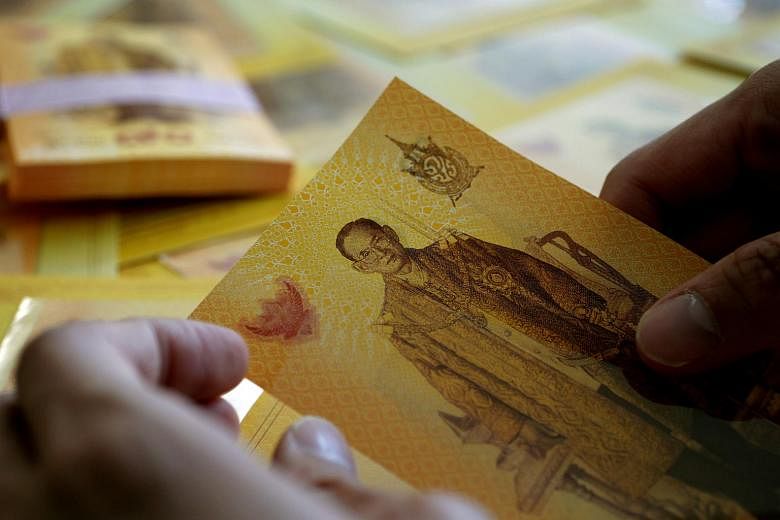BANGKOK (BLOOMBERG) - A surge in the baht is adding to the challenges facing Thailand's trade-dependent economy this year as exports decline.
The baht's climb of about 5 per cent against the US dollar in the past six months is the strongest in the world, according to data compiled by Bloomberg. Exports are already suffering from the US-China trade war and fell in December for the second straight month, Commerce Ministry figures showed on Monday (Jan 21).
Currency strength is a worry and will hurt shipments, Pimchanok Vonkorpon, the ministry's director general of trade policy and strategy, said in a briefing after releasing the trade data.
The baht has jumped thanks to Thailand's US$207 billion of foreign reserves, a current-account surplus and dollar weakness sparked partly by the Federal Reserve's recent dovish tilt.
The currency will continue to be strong this year, said Krung Thai Bank Pcl chief strategist Jitipol Puksamatanan. But ING Groep NV Economist Prakash Sakpal said politics could be a headwind amid uncertainty stemming from the general election due in 2019 after more than four years of military rule.
Exports of goods and services are equivalent to about two-thirds of gross domestic product in South-east Asia's second-largest economy. Growth in shipments has fizzled since a peak in early 2018 and the back-to-back fall over November and December is the first since 2016. The 1.72 per cent December contraction exceeded the Bloomberg survey estimate of a 0.2 per cent drop.
Some commentators remain sanguine about the overall economic outlook. The World Bank, for instance, said last week that rising private consumption and investment are filling much of the gap from easing exports.
The Bank of Thailand raised its benchmark interest-rate in December for the first time since 2011, by a quarter point to 1.75 per cent, as it strives to normalize policy and prevent a build up of risk in the financial sector. But the baht's climb could complicate matters by weighing on already below-target inflation.
"Low inflation may lead to a long pause in our slow rate-hike cycle this time," said Kampon Adireksombat, chief economist at Kasikorn Securities Pcl in Bangkok. "We expect the central bank to raise the rate only once this year, in the fourth quarter."

